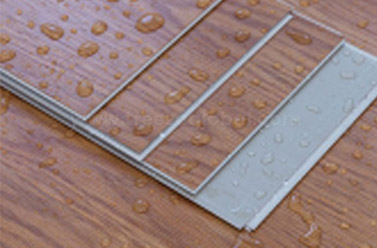+86 18553832636
May. 12, 2022
When choosing floor materials, you have many different options. You can use dozens of stones, tiles, and woods, as well as cheaper alternatives that can imitate these materials without breaking the bank. The two most popular alternative materials are luxury vinyl board flooring and stone polymer composite flooring: LVP and SPC. What is the difference between them? Which is the best choice for your home? The following is a brief overview of these two flooring products.
Luxurious vinyl planks are made of compressed vinyl layers and covered with high-resolution images to mimic the appearance of another material. Wood planks are generally used to imitate hardwood because the shape is similar to solid wood planks. However, high-resolution images allow the vinyl to look like almost any other material, such as stone, tiles, etc. LVP has several layers, but the main layer is its vinyl core, which makes the board durable but flexible.
Stone polymer composite flooring is similar because it contains high-resolution images, overlaid on vinyl, and coated with a transparent wear-resistant layer to protect the floor from scratches, stains, fading, etc. However, the core materials in SPC are plastic and compressed limestone powder. This makes the board hard and stiff, rather than soft and flexible.
Waterproof SPC Flooring stands for stone-plastic composite material. These well-designed luxury vinyl planks are known for their 100% water resistance and unparalleled durability, using advanced technology to beautifully imitate natural wood and stone at a low price. SPC's iconic rigid core is almost indestructible, making it ideal for high traffic and business environments.

Water-Proof SPC Flooring
The two materials are similar in many ways. They are waterproof, scratch-resistant, and are generally quite durable. They are easy to install by themselves, do not require glue and solvents, and are easy to maintain. They are cleaned regularly to remove dust and quickly mopped to remove spills. And they are much cheaper than the materials used as substitutes.
So, apart from flexibility, what are the differences between LVP and SPC flooring? The rigid structure of SPC gives it some advantages. Although both can be installed on almost any solid subfloor, LVP requires its subfloor to be completely level and free of any dents, obstacles, etc. The flexible material will assume the shape of any defect, while the SPC will maintain its own shape regardless of the floor underneath it.
By the same token, SPC is also more durable and resistant to dents and other damage. It will last longer and is more durable. The rigidity of SPC also allows it to provide more support under the feet, while the flexibility of LVP makes it feel softer and more comfortable when walking. SPC is also slightly thicker than LVP, and the appearance and texture are often more realistic.
This is just a brief overview of the two flooring materials. Each method has many other advantages and disadvantages, depending on your specific situation. So which flooring material is best for you? Talk to a flooring expert, he can help you weigh the advantages and disadvantages of stone polymer composites and luxury vinyl planks, and decide which one best meets your home's needs, and can provide you with good services in the next few years.
Let us help you find the best SPC flooring for your project. When you contact us, please provide your detailed requirements. That will help us give you a valid quotation.
Previous: How Is Plywood Made?
Navigation
Tel.: +86 18553832636
Fax: +86 571 8858 5176
E-mail: info@treezogroup.com
WhatsApp: +1 6048308096
wechat: +86 18553832636
SUBSCRIBE
Get the latest news from TREEZO GROUP
